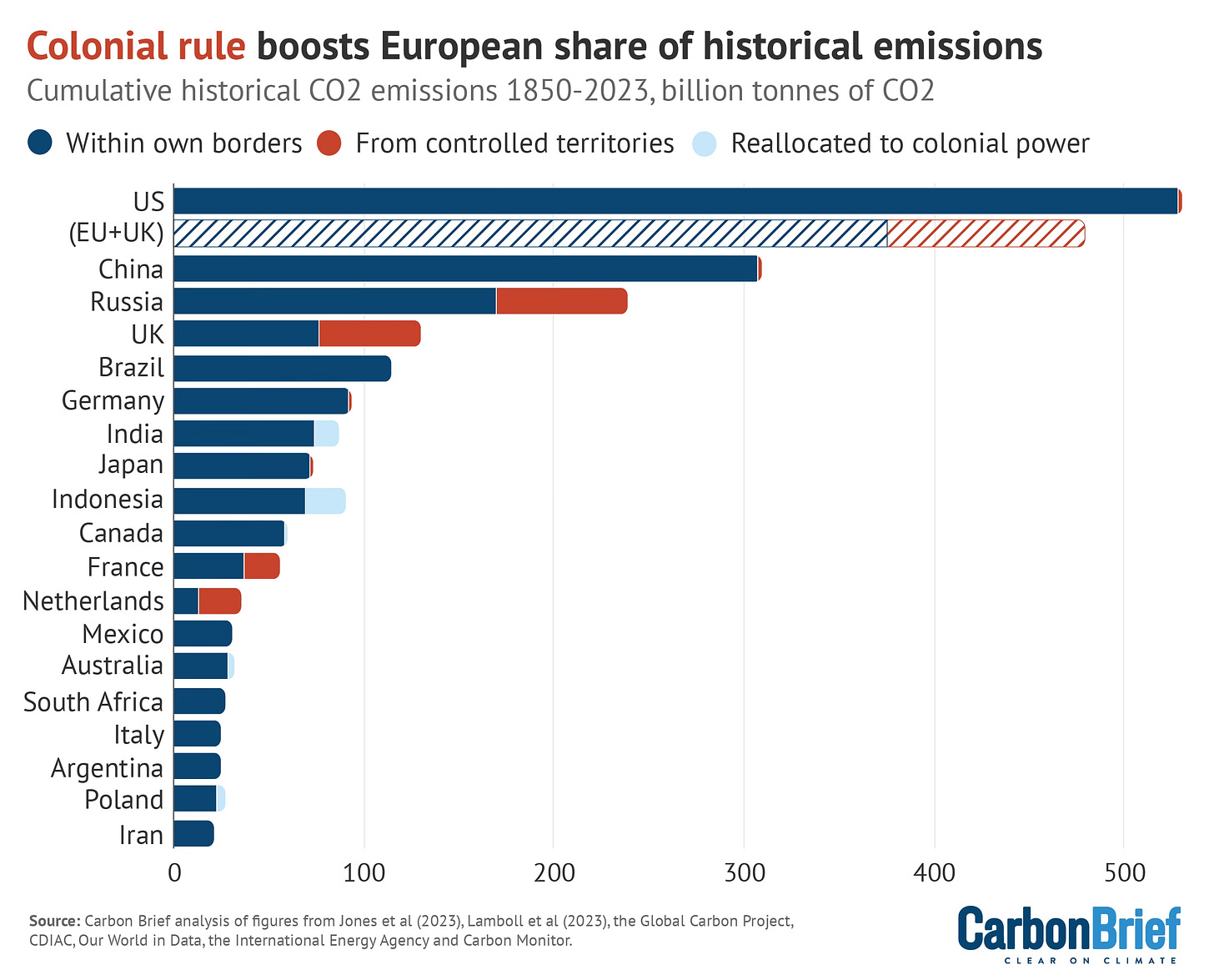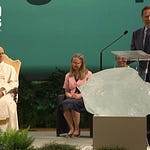Welcome to Belém, where the world1 has gathered to talk about saving the Amazon as if it weren’t already on fire.
Cataloguing the chaos leading up to COP30 Ben Cooke of The Times. His team’s reporting makes clear why the mood isn’t exactly jubilant: the clean-power alliance with zero members, the rainforest pledges with little progress, and the renewed swagger of fossil petrostates.
Even potential bright spots, like the Tropical Forest Forever Facility announced last week, were somewhat dimmed by the spectacle of UK prime minister Keir Starmer reversing an earlier decision not to go to COP, only to make the trip to then announce his government wouldn’t be part of the hoped-for signature initiative out of this event.
Which, for Green Party leader Zack Polanski, begs the question, why Starmer bothered to make the trip:
COPs are ‘a bit of theatre’, as Baroness Bryony Worthington has said, quoted by Ben in a recent piece. The question is — in a world that has failed to keep its Paris Agreement promise to try and keep global heating under 1.5°C, does that theatre still have a point, if it ever did?
Or are they distractions from the real work required, creating the false impression that some of the worst effects of climate change can still be avoided?
Or worse, are they about to become — foreshadowed by the US going to unprecedented lengths to undermine the International Maritime Organisation’s plan to reduce emissions2 — a theatre of despair, where opponents of climate action see their chance to shred what remains of consensus about the need for, and viability of, a transition away from fossil fuels that only two years ago finally made it into a COP communique.
Ben and I get into that and more, including some things to watch for in this COP:
1. Financial Initiatives: Success will partly be measured by progress on climate finance initiatives like the Baku to Belèm roadmap, crucial for scaling investment in green infrastructure across developing countries, and whether new schemes like the TFFF to protect rainforests get off the ground.
2. Adaptation: Paris Agreement made mention of the need to figure out how to talk about measures to adapt to the changes in climate that would not be avoided, even at 1.5°C warming. The Global Goals on Adaptation have been discussed for years, only to find that it’s such a hyper-local problem, and one that is so difficult to discuss that things like managed retreat are so politically toxic3 that no one can talk honestly about them.
3. Walkout? Delegates from climate-vulnerable states are in a double-bind. The COPs are an essential forum to draw the world’s attention to the perverse reality that the people most likely to suffer from the effects of climate change had the least to do with creating the problem. The International Court of Justice made clear that failure to curb emissions and deal with the effects of historical emissions violates the basics of international law.
4. Walk-in? While the US is notably not sending any major officials to Belèm - Trump having already signalled the intention of the US to again withdraw from the Paris Agreement - will that just be a US absence? Or will the Administration, as it did during the IMO talks, find a way to actively undermine further discussion? A consensus-based decision-making process of the COPs has always been a fatal flaw, if a major state actor is determined to wreck it.
We’ll be keeping tabs on COP throughout the next two weeks so check back for more. But this conversation with Ben really helped me reset as we head into it.
In this edition accompanying our most recent chat with Laurie Laybourn, I wrote about the Fairbourne and what happens in the real world when hard choices on adaptation affect whole communities:











